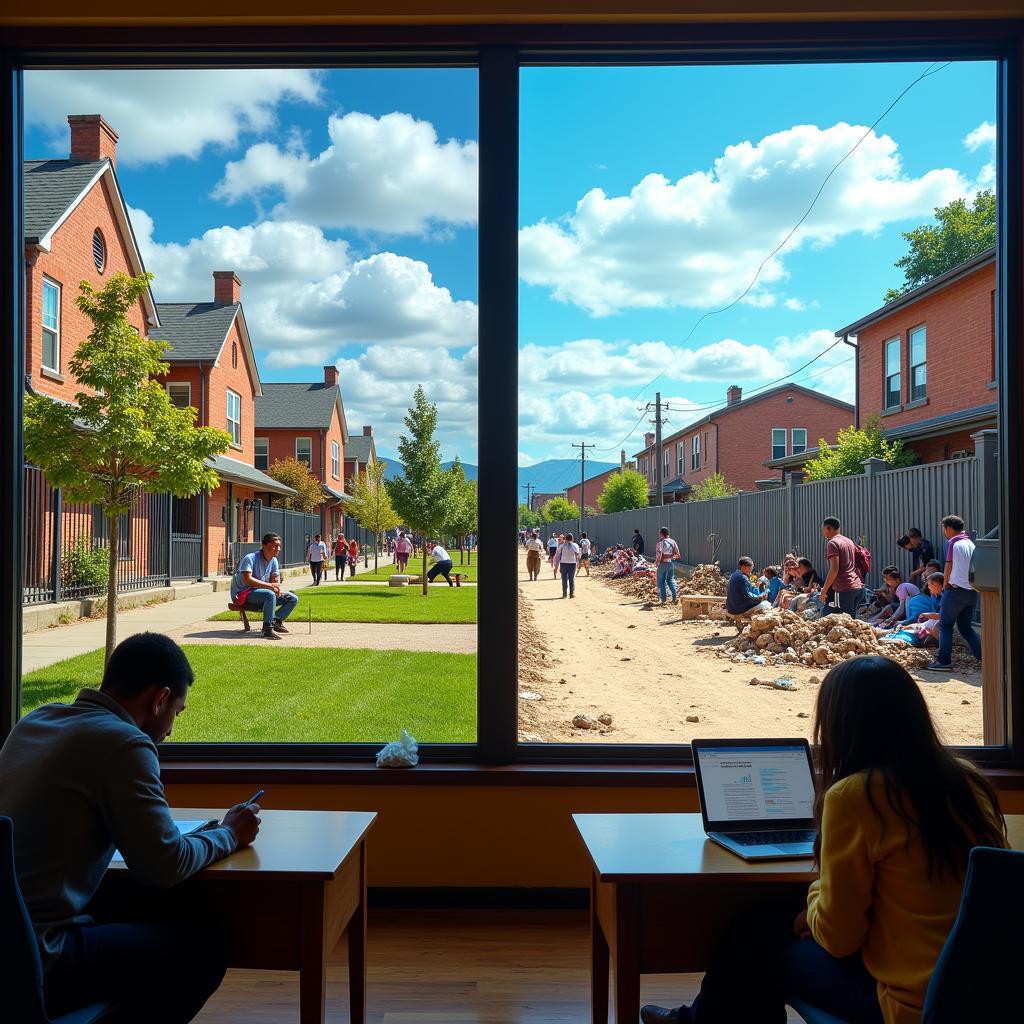African American Unequal Education: A Persistent Struggle
African American Unequal Education is a deeply rooted issue stemming from historical injustices and continuing systemic inequalities. This article explores the complexities of this challenge, examining its historical context, present-day manifestations, and potential pathways toward a more equitable future.
The Historical Roots of Unequal Education
The legacy of slavery and Jim Crow laws has created a foundation of disparity in the American education system. Segregation, underfunded schools, and discriminatory practices denied African Americans access to quality education for generations. Even after the landmark Brown v. Board of Education ruling in 1954, which declared state-sponsored segregation unconstitutional, African Americans continued to face significant barriers to educational equality. african american education in the 1930s sheds more light on this era. The struggle for equal educational opportunities is a continuous battle against systemic inequities.
Modern Manifestations of Educational Inequality
The effects of historical discrimination continue to manifest in several ways:
- Funding disparities: Schools in predominantly African American communities often receive less funding than those in predominantly white communities, leading to fewer resources, outdated facilities, and lower teacher salaries.
- Achievement gap: Standardized test scores and graduation rates consistently reveal a significant gap between African American students and their white counterparts.
- Disciplinary disparities: African American students are disproportionately disciplined in schools, often for subjective offenses, leading to increased suspension and expulsion rates, which further hinder their educational progress.
- Lack of access to quality teachers and resources: Many schools serving African American communities lack access to experienced and highly qualified teachers, as well as essential resources like technology and updated curriculum.
 The Impact of Unequal Education on the African American Community
The Impact of Unequal Education on the African American Community
What are the main factors contributing to African American unequal education?
The factors contributing to unequal education are complex and interconnected. They include historical discrimination, systemic racism within the education system, funding disparities, lack of access to quality resources and teachers, and implicit bias in curriculum and teaching practices.
How does unequal education affect African American communities?
Unequal education perpetuates cycles of poverty and limits economic mobility within African American communities. It also contributes to health disparities, higher incarceration rates, and reduced civic engagement. african american unemployment rate us illustrates the economic consequences of this disparity. Education is a fundamental right, and the struggle for equal access continues.
Bridging the Gap: Pathways to Educational Equity
Addressing this complex issue requires a multifaceted approach:
- Equitable funding: Implementing funding models that prioritize schools in underserved communities is essential.
- Teacher diversity and training: Recruiting and retaining diverse, culturally competent teachers who understand the unique challenges faced by African American students is crucial.
- Culturally relevant curriculum: Developing and implementing curriculum that reflects the diversity of student experiences and incorporates African American history and culture can foster a more engaging and inclusive learning environment.
- Early childhood education: Investing in high-quality early childhood education programs can provide a strong foundation for future academic success. african american education in the 20th century provides a broader historical perspective.
“Investing in the education of African American children is not just a matter of social justice, it’s an investment in the future of our nation.” – Dr. Anika Johnson, Education Policy Expert.
 The Future of African American Education: Striving for Equity
The Future of African American Education: Striving for Equity
Conclusion
African American unequal education remains a persistent challenge that demands our continued attention and action. By acknowledging the historical context, understanding the current realities, and implementing targeted solutions, we can work towards creating a truly equitable education system that empowers all students to reach their full potential. african american oppression essay further explores the broader social context. Addressing this issue is crucial for building a more just and equitable future.
FAQ
- What is the achievement gap? The achievement gap refers to the disparity in academic performance between African American students and their white counterparts.
- How does school funding affect educational equity? Unequal school funding leads to disparities in resources, teacher quality, and facilities, ultimately impacting student outcomes.
- What is culturally relevant pedagogy? Culturally relevant pedagogy is a teaching approach that incorporates students’ cultural backgrounds and experiences into the learning process.
- Why is early childhood education important? Early childhood education provides a crucial foundation for future academic success and can help close the achievement gap.
- How can I advocate for educational equity? You can advocate for educational equity by supporting policies that promote equitable funding, teacher diversity, and culturally relevant curriculum.
More resources on African Life
Need assistance? Contact us 24/7: Phone: +255768904061, Email: [email protected], or visit us at Mbarali DC Mawindi, Kangaga, Tanzania.